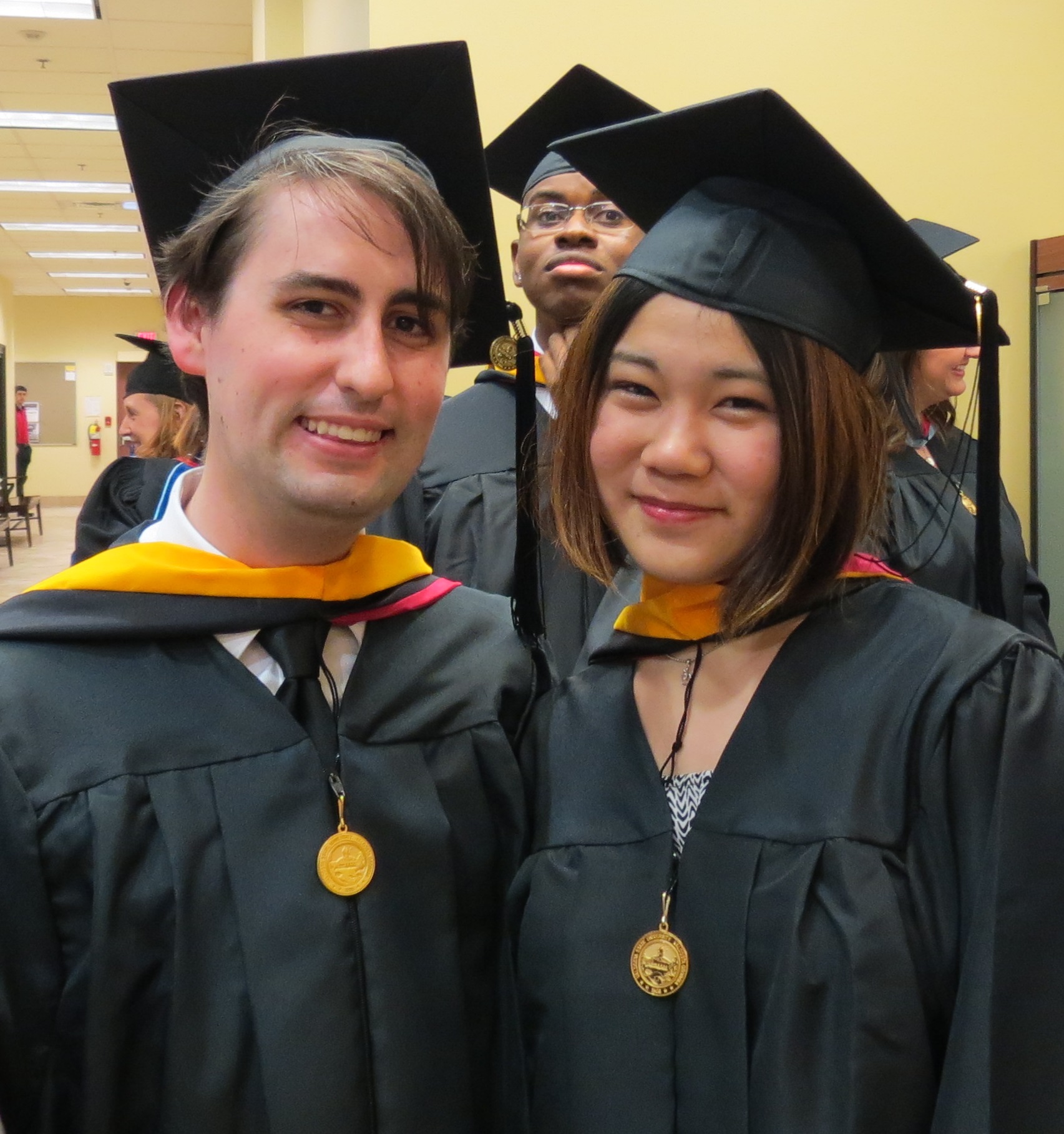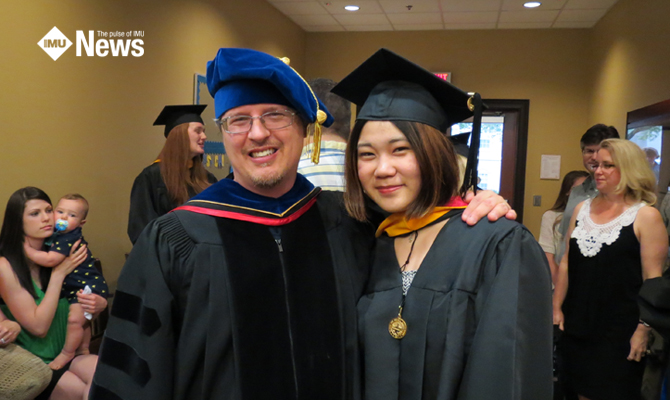A belief that the job opportunities in the psychology field are much broader and advanced in the USA led Alicia Wong to apply for a few schools in USA for postgraduate studies after the completion of her psychology degree at IMU. On top of this, most of the researchers that she wanted to work with at that time were based in the USA.
Alicia then accepted an offer from a state university and completed her Master in Clinical Psychology and Counseling at Valdosta State University, Georgia. Currently, she is working for a psychiatric hospital in a forensic unit as a behavioral specialist/mental health counselor.
 “Prior to working as a behavioral specialist/mental health counsellor, I was working with a Housing First Organisation, as a Residential Counselor. Working in this capacity within this environment, the clients I served were previously homeless individuals with chronic poly-substance abuse and mental illnesses. As the non-profit organisation subscribed to Harm Reduction and Recovery philosophies, clients were allowed substance use within personal spaces. Consequently, I did a lot of crisis management on a regular basis.” This is slightly different from what Alicia is currently doing as a behavioral specialist/mental health counsellor. She still has a lot of client interaction but now has more opportunities to experiment with clients’ treatment although paperwork has increased.
“Prior to working as a behavioral specialist/mental health counsellor, I was working with a Housing First Organisation, as a Residential Counselor. Working in this capacity within this environment, the clients I served were previously homeless individuals with chronic poly-substance abuse and mental illnesses. As the non-profit organisation subscribed to Harm Reduction and Recovery philosophies, clients were allowed substance use within personal spaces. Consequently, I did a lot of crisis management on a regular basis.” This is slightly different from what Alicia is currently doing as a behavioral specialist/mental health counsellor. She still has a lot of client interaction but now has more opportunities to experiment with clients’ treatment although paperwork has increased.  “A behavioral specialist/mental health counsellor does a range of things, depending on where they work. I work in psychiatric hospital in a forensic unit – this means that the people I work with have mental illnesses as well as criminal charges. I work with clients’ challenging behaviors, conduct groups, and do individual therapy. I also do risk assessments, create behavioral guidelines (for staff to interact with some clients), behavioral support plans (plans to help clients increase/decrease target behaviors), and train staff for these guidelines/plans.” “Strangely enough, I didn’t actively choose to work in a psychiatric hospital, no less a forensic unit. I’ve worked with higher-functioning adults then, so this was a challenge to me. The clients are more acutely psychotic, and sometimes with lower educational levels, and poor socioeconomic status. I realized that if I could succeed here, it would be much easier with other populations.”
“A behavioral specialist/mental health counsellor does a range of things, depending on where they work. I work in psychiatric hospital in a forensic unit – this means that the people I work with have mental illnesses as well as criminal charges. I work with clients’ challenging behaviors, conduct groups, and do individual therapy. I also do risk assessments, create behavioral guidelines (for staff to interact with some clients), behavioral support plans (plans to help clients increase/decrease target behaviors), and train staff for these guidelines/plans.” “Strangely enough, I didn’t actively choose to work in a psychiatric hospital, no less a forensic unit. I’ve worked with higher-functioning adults then, so this was a challenge to me. The clients are more acutely psychotic, and sometimes with lower educational levels, and poor socioeconomic status. I realized that if I could succeed here, it would be much easier with other populations.”
| Alicia believes that her psychology degree at IMU definitely set the foundation for graduate school studies. “A couple of classes were more significant than the rest: positive psychology expanded my perspective on looking not just at diagnosable illnesses, but also maladaptive behaviors we all perform; another class discussing the pitfalls of psychology as a field – the discomfort of looking at the flaws motivated me to do things better whenever I could.” |
“At IMU, we had a really small group, so relations were pretty tight. Probably the best memory then was a Langkawi trip after we finished all our classes. Recently, two of my friends got married to each other. It’s still incredible that we can go and then pick the friendships back up when we return”, said Alicia who intends to move to somewhere more progressive, to a more challenging population in the future. “I’ve always found working with difficult clients satisfying, so that idea may guide me until it changes.”
Alicia’s advice to anyone who wishes to study psychology is “It’s a good idea to think about the general area of psychology with which you are fascinated. Psychology is very broad, and if you go in without an idea, it can get overwhelming. Also, if you’re hoping to get further in the field, graduate school is a general requirement.”









